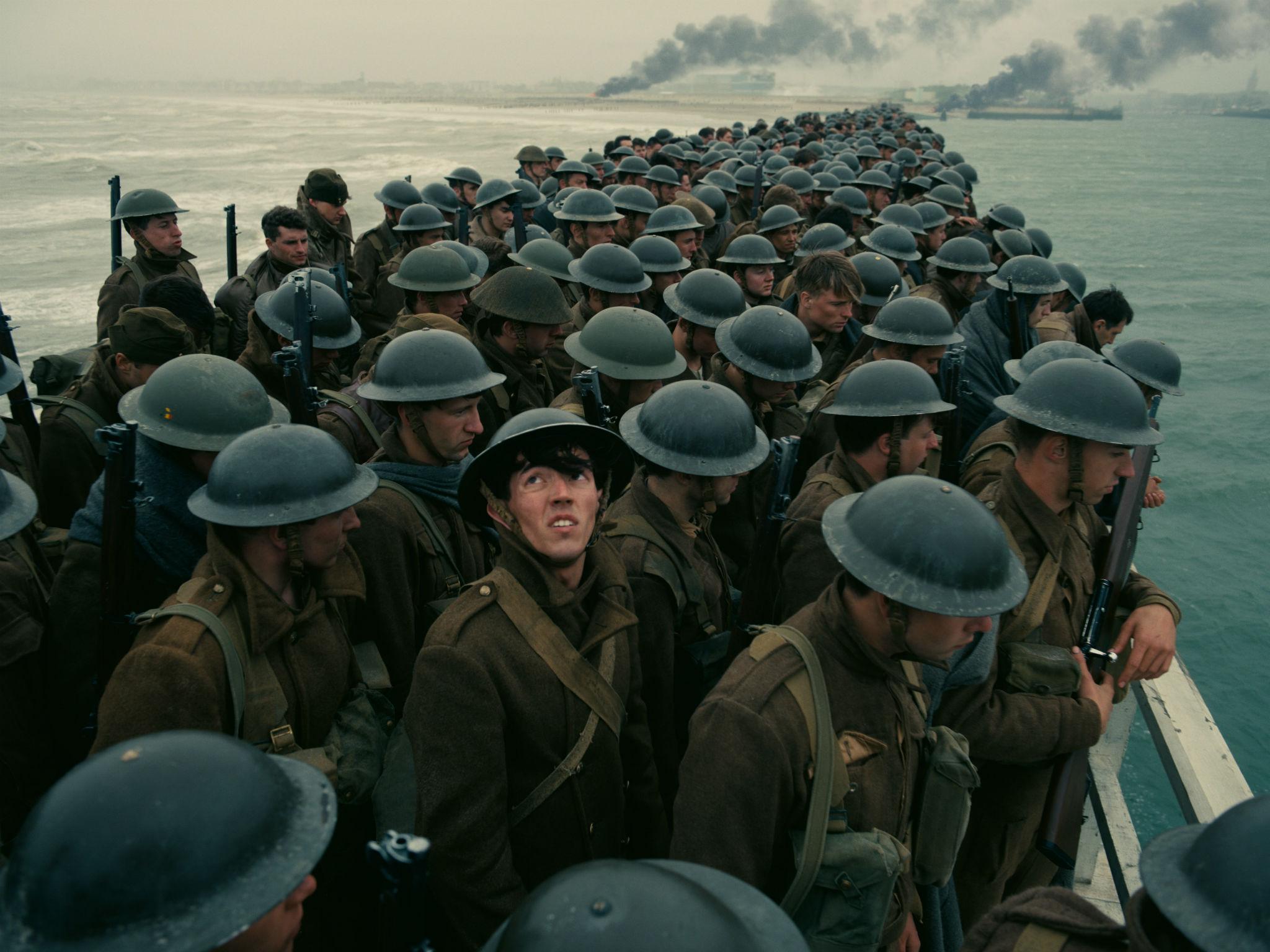What my time at an Afghan army camp taught me about why soldiers watch war films like Dunkirk
I quickly learned that the portrayal of war casualties on film and television is usually far off the mark. People bleed differently on telly than they do in real life. They die differently too

Your support helps us to tell the story
From reproductive rights to climate change to Big Tech, The Independent is on the ground when the story is developing. Whether it's investigating the financials of Elon Musk's pro-Trump PAC or producing our latest documentary, 'The A Word', which shines a light on the American women fighting for reproductive rights, we know how important it is to parse out the facts from the messaging.
At such a critical moment in US history, we need reporters on the ground. Your donation allows us to keep sending journalists to speak to both sides of the story.
The Independent is trusted by Americans across the entire political spectrum. And unlike many other quality news outlets, we choose not to lock Americans out of our reporting and analysis with paywalls. We believe quality journalism should be available to everyone, paid for by those who can afford it.
Your support makes all the difference.One Direction’s Harry Styles will make his movie debut this month in Dunkirk, an ambitious retelling of the 1940 evacuation of more than 330,000 Allied troops from the Nazi-besieged beaches of Dunkirk. When watching the trailer, I caught a brief glimpse of medics carrying a wounded man on a stretcher. As someone who’s seen war up close, my first thought was that art really doesn’t imitate life.
During the war in Afghanistan in 2011, I spent six weeks at an army hospital in Camp Bastion as part of my research on high-performing teams. At the time, it was the world’s bloodiest hospital and I was surprised to learn that it was also home to many a war movie on the base’s TV screens.
I quickly learned that the portrayal of war casualties on film and television is usually far off the mark. People bleed differently on telly than they do in real life. When hurt, they are more subdued than their movie and TV antics would have one believe. They die differently.
So why do those beseeched by the sordid facts of real-world warfare seek entertainment value in such facsimiles as Zero Dark Thirty, Black Hawk Down and Saving Private Ryan? What pleasure do war medics get out of watching reruns of M*A*S*H, even if their own war and wounded look nothing like they do on the television?
Perhaps it is because war itself is so random, volatile and erratic, rendering these familiar tales – violent and sickening as they are – so reassuringly predictable. Think of the easily recognisable elements in action-oriented war plots: prisoner of war camp experience and escape, submarine warfare, espionage, personal heroism, air dogfights, and male-bonding buddy adventures. One need not ever experience these things personally to “know” them well from movies and TV since childhood, as these army doctors did.
As one doctor at Camp Bastion told me, classic war movies are “full of familiar lines, scenes and music,” and so represent a relative “safe space” that somehow makes the world outside the reinforced military base fence seem less frightening.
War movies – unlike real life – tend to have a narrative arch: something happens to someone we care about; this leads to a series of actions that culminate in a climax before all is resolved. Thus even the most farfetched plots can “fix” the idea of war by creating a storyline where there may not otherwise be one. Moviegoers expect such narrative arches, and movie directors are trained to deliver them, so this can impose some semblance of structure to the disorienting chaos of war.
As part of this plot, many movies provide a decisive criticism of senseless warfare in a way that soldiers and army medics often don’t feel able to voice themselves. After all, to be publicly critical of the war effort risks undermining morale, the one thing warring armies can scarcely afford to lose. To watch criticism through the time-tested themes of war movies – gallant but failed struggle, the inhumanity of battle, and the brutal effects of war on society – can serve as a silent “endorsement” of the underlying message of war’s futility.
Then there’s the release from war’s hell offered by the gallows humour that has long run through war movies and television, as exemplified by the jokes, puns and antics that made M*A*S*H such an enduring TV series (the final episode of its 12th season in 1983 was seen by a then-record 106 million US television viewers, narrowly surpassed only by a Super Bowl 27 years later).
One army doctor I met at Camp Bastion bore an uncanny resemblance to the M*A*S*H character “Hawkeye” Pierce. I’ll never forget how his caustic, anti-authoritarian sentiment helped him retain his sanity as a US Marine. His operating theatre often broke out in off-pitch versions of Queen’s “Bohemian Rhapsody” mid-surgery.
Movies do as movies must: they create a world of “make-believe” that offers temporary respite from the pointlessness of war – even for the soldiers serving in them.
Mark de Rond is Professor of Organisational Ethnography at Cambridge Judge Business School, the University of Cambridge. His time in Camp Bastion in Afghanistan is recounted in his book, Doctors at War, published earlier this year by Cornell University Press.
Join our commenting forum
Join thought-provoking conversations, follow other Independent readers and see their replies
Comments